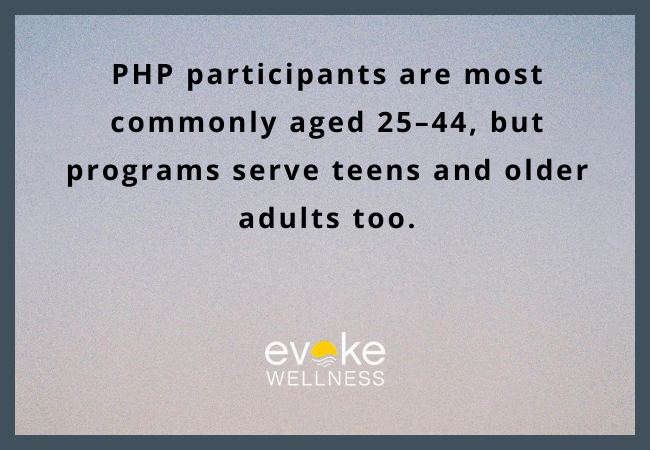In the journey toward recovery from addiction or mental health struggles, treatment needs vary widely from person to person. While some individuals require full-time residential care, others may benefit from more flexible, intensive options. A Partial Hospitalization Program (PHP) provides a critical middle ground—offering comprehensive care with the ability to return home in the evenings. But who exactly is the right fit for this level of care?
At Evoke Waltham, we recognize that no two recovery journeys are the same. This guide will walk you through what a PHP involves, who qualifies for this type of treatment, and how it can serve as a powerful stepping stone to sustained recovery and emotional wellness.
Understanding a Partial Hospitalization Program
A Partial Hospitalization Program Waltham, MA is an intensive, structured treatment program designed for individuals who need more support than standard outpatient care but do not require 24/7 supervision in a residential facility. Participants typically attend the program five to seven days a week, spending several hours each day engaged in therapy, medical care, and group activities before returning to a sober living environment or their own home in the evening.
PHPs are often part of a continuum of care, used as a step-down from inpatient treatment or as a step-up from traditional outpatient therapy for those experiencing worsening symptoms. PHPs focus on stabilization, relapse prevention, and the development of long-term coping strategies.
Core Components of a PHP
The structure and intensity of PHPs allow individuals to address serious behavioral health issues while maintaining some degree of independence. Services commonly offered include comprehensive psychiatric evaluation and medication management, individual and group therapy, family counseling, skills-based therapies (such as DBT, CBT, and mindfulness), crisis intervention, and psychoeducation.
PHPs are highly individualized, with treatment plans developed based on a client’s specific diagnoses, medical history, trauma experiences, and recovery goals.
Key Benefits of a PHP
For many individuals, PHPs offer the ideal combination of intensive treatment and daily life flexibility. These programs provide the structure needed for recovery while allowing clients to maintain family and community connections. Participants can apply skills in real-time outside of therapy, receive immediate feedback from clinicians, and adjust their care plans quickly as needs evolve.
Clients in PHP also experience the benefits of group therapy, which fosters connection, reduces isolation, and helps build peer support systems.
Who Is an Ideal Candidate for a PHP?
Not everyone is suited for a Partial Hospitalization Program. This level of care is best suited for individuals who meet certain criteria across various dimensions of wellness. Below are some of the most common signs that someone may benefit from enrolling in a PHP.
Experiencing Moderate to Severe Mental Health or Substance Use Issues
A PHP is suitable for people dealing with serious behavioral health concerns that significantly interfere with daily life but do not pose an immediate risk of harm that would necessitate inpatient care. This includes conditions like depression, anxiety disorders, bipolar disorder, PTSD, substance use disorders, and personality disorders. Many clients enter PHPs when outpatient therapy is no longer sufficient or after experiencing a relapse or crisis.
Medically Stable but Needing Clinical Support
An ideal PHP candidate does not require 24-hour medical supervision or detox services. They are medically stable and can attend daily sessions but still need professional support to manage symptoms, cravings, or medications. If detox is necessary prior to starting PHP, they may first complete a separate detox program and then transition into PHP.
Willing and Motivated to Engage in Treatment
Because PHPs are voluntary and do not involve constant supervision, individuals must be willing and motivated to participate actively in their treatment. A good candidate is someone who attends all scheduled sessions, participates in group and individual therapy, is open to learning new coping skills, and avoids substance use during the program.
Has a Safe and Supportive Living Environment
A key component of PHP is that clients return home each evening. A stable, sober, and supportive home environment is crucial to the program’s success. For those without such support, sober living homes may offer a beneficial alternative while participating in PHP.
Transitioning from Residential or Inpatient Care
PHP is often an excellent next step for individuals recently discharged from residential or inpatient care. These individuals benefit from continued structure, intensive therapy, and relapse prevention support without the full-time commitment of inpatient care.
Seeking Flexibility Without Sacrificing Treatment Quality
PHPs provide daily clinical care while allowing individuals to continue fulfilling personal or professional responsibilities. This makes PHP a great choice for parents, students, or working adults who need a balance between treatment and real life.
Addressing Co-Occurring Disorders in PHP
PHPs are especially beneficial for individuals with dual diagnoses—those dealing with both mental health disorders and substance use. At Evoke Waltham, we integrate mental health and addiction treatment into one cohesive care plan. Our clinicians are trained in trauma-informed care and various evidence-based therapies, allowing for individualized treatment that addresses root causes as well as symptoms.
Our team helps each client navigate the challenges of co-occurring disorders, identifying triggers, learning healthy coping mechanisms, and implementing long-term management strategies. This holistic and integrated approach to healing makes our PHP a valuable step in the recovery process.
Programs like PHP are part of a wider network of Addiction Treatment Programs in Massachusetts, ensuring that every person can find a level of care that meets their needs.
How PHP Fits into the Continuum of Care
PHP sits in the middle of the treatment spectrum. For someone stepping down from inpatient care, PHP provides a way to continue their healing in a less restrictive environment. For someone stepping up from outpatient care, PHP increases structure and intensity. When combined with aftercare and community support, PHP can play a critical role in long-term recovery.
Clients at Evoke Waltham often continue care through intensive outpatient programs or traditional outpatient therapy after completing PHP. We also offer referrals for housing, job readiness training, and ongoing mental health services.
As part of a full network of Substance Abuse Treatment Programs in Massachusetts, Evoke Waltham ensures that individuals don’t feel like they’re going through recovery alone—every step is supported.
The Importance of Mental Health in PHP
For many individuals, unaddressed mental health issues are what lead them to seek care in the first place. Whether it’s trauma, anxiety, depression, or another underlying disorder, PHP provides the setting to explore and heal these issues in depth. We incorporate clinical care, therapeutic groups, and psychiatric services into daily programming, ensuring that each client receives full-spectrum support.
Our team recognizes that healing from mental illness requires more than just symptom management—it requires empowerment, education, and connection. That’s why we integrate holistic and experiential approaches into our program alongside traditional therapies, reflecting our commitment to comprehensive Mental Health Therapy Programs in Massachusetts.
Why Choose Us
Evoke Waltham stands out as a trusted provider of PHP services because of our client-first approach. From your first call to the moment you graduate from our program, you’ll experience compassionate, clinically robust care.
What makes our PHP different:
-
Highly experienced staff with specialties in trauma, addiction, and mental health
-
Individualized care planning and goal tracking
-
Evidence-based therapies with proven effectiveness
-
Dual diagnosis treatment integrated into every aspect of programming
-
Seamless transition to aftercare and community-based support
We pride ourselves on providing a safe and nurturing environment where healing can take root and grow. Whether you’re entering treatment for the first time or stepping down from a higher level of care, Evoke Waltham is here to support you with clinical expertise and genuine compassion.
Conclusion
A Partial Hospitalization Program can be a powerful and transformative step for individuals ready to commit to recovery but not in need of 24/7 supervision. With the right balance of support and independence, PHP helps bridge the gap between intensive treatment and full reentry into daily life.
At Evoke Waltham, our PHP provides evidence-based care, compassionate support, and a structured environment where healing thrives. Whether you’re dealing with a substance use disorder, a mental health condition, or both, you don’t have to navigate the path to recovery alone.
Take the first step toward a healthier, more fulfilling life. Call us today at 866.276.1920 to speak with a member of our admissions team and find out if PHP is the right fit for you.
Frequently Asked Questions (FAQs)
What is a Partial Hospitalization Program (PHP)?
A Partial Hospitalization Program is a structured, intensive outpatient treatment designed for individuals who need significant support but not 24-hour supervision. It typically involves daily therapy, medical oversight, and skill-building sessions while allowing clients to return home in the evenings.
Who is a good candidate for a PHP?
A good candidate for a PHP is someone who is medically stable, motivated to participate in treatment, and dealing with moderate to severe symptoms of addiction or mental health disorders. They should have a safe home environment and not require detox or inpatient-level care.
What conditions are treated in a PHP?
PHPs treat a wide range of conditions, including substance use disorders, depression, anxiety, bipolar disorder, PTSD, and co-occurring mental health and addiction issues.
How long does a PHP typically last?
The duration of a PHP can vary based on individual needs, but most programs last between 2 to 6 weeks. Treatment plans are personalized and adjusted as progress is made.
Can I work or attend school while in a PHP?
Most PHPs are daytime programs and can make it difficult to maintain full-time employment or school schedules. However, some flexibility may be possible depending on your provider and personal situation.
Is a PHP covered by insurance?
Many insurance plans do cover PHPs as part of behavioral health services. It’s best to contact your insurance provider or the admissions team at the facility to confirm your specific coverage and benefits.



